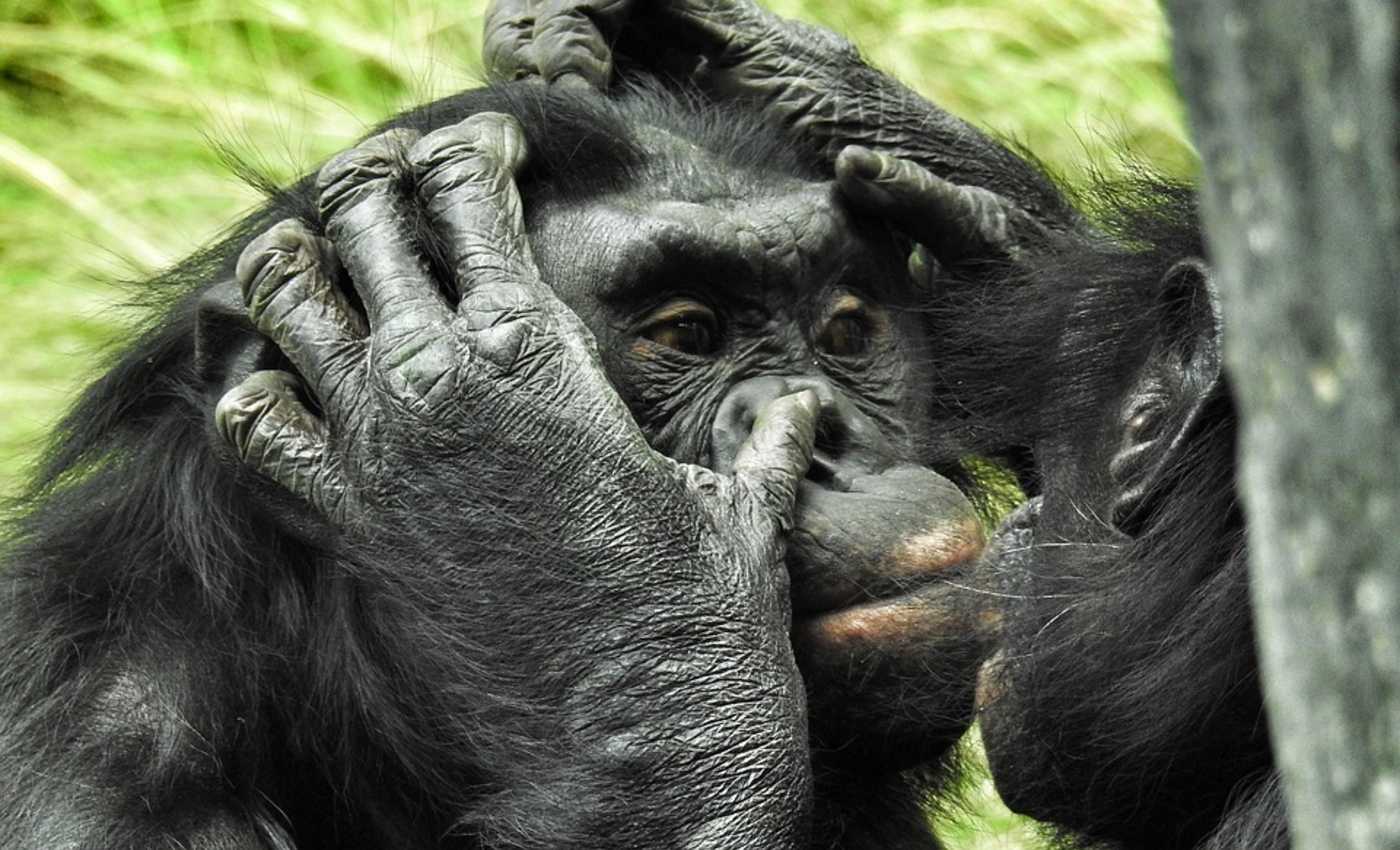
www.goodnewsnetwork.org
Some Generous Apes May Help Explain The Evolution Of Human Kindness
Bonobos research reveals how their society developed cooperation, generosity, and reciprocity, in place of chimp violence.
Science & Tech
While chimps are hostile and competitive, bonobos, their lesser-studied ape relatives, share about the same amount of DNA as us—and live in the polar opposite society of the blood-and-guts chimp dominance hierarchy.
A recent paper—based on research conducted by Duke University researchers in the Democratic Republic of the Congo—found that given a plate of prized fruit and the decision to eat it all on their own, bonobos preferred to unlock an unrelated bonobo from a room with a locked door in order to share the food.
Later, the researchers found that when the bonobos were in groups of three—composed of a bonobo with food, their friend, and a stranger—the subject with food would generally share with the stranger first, followed by the friend.
While humans can be more like chimps this regard, sometimes perceiving strangers as not even of the same species depending on just how far outside their group the stranger is, this bonobo beneficence of treating strangers before in-group members can be found in certain Asian customs, or in the Roman writings on Germanic Tribes of Northern Europe like the Suebi, of whom, the historian Tacitus wrote:
“The host welcomes his guest with the best meal that his means allow… No distinction is ever made between acquaintance and stranger as far as the right to hospitality is concerned.”
























































